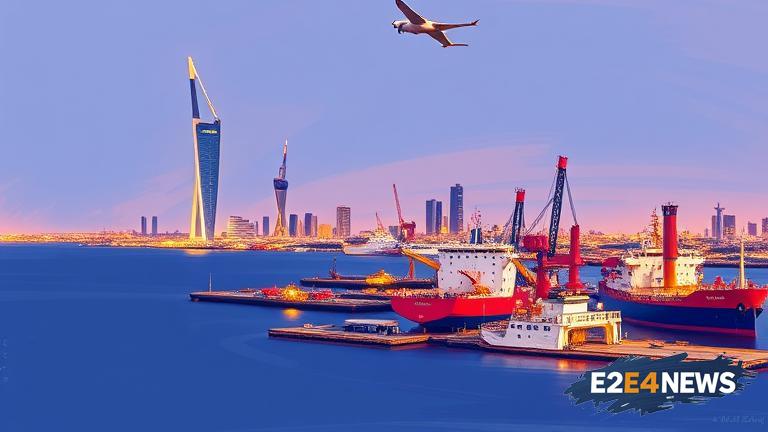Bahrain’s economic diversification efforts have been underway for several years, with the government implementing various initiatives to reduce the country’s reliance on oil and gas. The country has made significant progress in this regard, with the non-oil sector contributing an increasing share of the country’s GDP. According to recent data, the non-oil sector accounted for over 80% of Bahrain’s GDP in 2022, up from around 70% in 2015. This growth has been driven by a number of factors, including the expansion of the financial services sector, the growth of tourism, and the development of new industries such as technology and logistics. The government has also implemented a number of policies to support the growth of the private sector, including the establishment of the Bahrain Economic Development Board (EDB) and the introduction of a range of incentives for foreign investors. One of the key areas of focus for the government has been the development of the Bahrain International Investment Park (BIIP), which has attracted a number of major international companies. The BIIP offers a range of benefits to investors, including 100% foreign ownership, tax exemptions, and streamlined regulatory procedures. The park has been designed to support the growth of a range of industries, including manufacturing, logistics, and technology. In addition to the BIIP, the government has also established a number of other economic zones, including the Bahrain Logistics Zone and the Bahrain Financial Harbour. These zones offer a range of benefits to investors, including state-of-the-art infrastructure, streamlined regulatory procedures, and access to a highly skilled workforce. The government has also invested heavily in the development of the country’s infrastructure, including the expansion of the Bahrain International Airport and the construction of a new port. These investments are expected to support the growth of the logistics and tourism sectors, which are seen as key drivers of economic growth. Overall, Bahrain’s economic diversification efforts are showing promising results, with the country making significant strides in reducing its dependence on oil and gas. The government’s efforts to support the growth of the private sector, combined with the country’s highly skilled workforce and favorable business environment, make Bahrain an attractive destination for foreign investors. As the country continues to develop its economy, it is likely that we will see further growth and investment in the coming years. The government has set a target of increasing the non-oil sector’s contribution to GDP to 90% by 2025, and it is likely that this target will be met. With its highly developed infrastructure, favorable business environment, and highly skilled workforce, Bahrain is well-placed to continue its economic diversification efforts and emerge as a major player in the regional economy.
